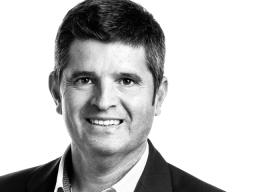
Daniel Ludvig, PhD
Research Assistant Professor, Department of Biomedical Engineering, Northwestern University
My Lab
Neuromuscular Control Lab
Our lab is focused on the mechanisms underlying the multijoint control of movement and posture in able-bodied individuals and in individuals with neuromotor pathologies. Specifically, we are interested in understanding the relative contributions of intrinsic muscle properties, limb geometry and neural activation in the control of whole limb function.
view labAbout Me
The broad objective of my research is to investigate how disease and injury affect the neuromechanics of posture and movement and how altered neuromechanics can lead to injury and disease. The mechanical properties of our limbs both enable and constrain our ability to interact with the surrounding world. These properties are especially important in our lower-extremities, through which interaction with the environment facilitates essential mobility tasks, such as quietly standing, walking, jumping, or running. To help investigate the relationship between altered neuromechanics and injury and disease, I have been using a combination of engineering tools including: experimental studies using custom-built robotic devices, system identification, and computational modeling. Current specific research objectives include: quantifying the mechanism of impairment in chronic ankle instability; quantifying the role of muscle mechanics in controlling movement; and developing novel non-invasive techniques to characterize muscle and tendon mechanical properties.
Location
Shirley Ryan AbilityLab
355 E Erie
Chicago, IL 60611
Education & Training
-
Education
2005 – 2010
Doctor of Philosophy. McGill University
2003 – 2005
Master of Engineering, McGill University
2000 – 2003
Bachelor of Science, McGill University
-
Post-Doctoral Fellowship
2014 – 2017
Montreal Rehabilitation Institute/University of Montreal
2010 – 2014
Rehabilitation Institute of Chicago
Featured Research
Recent Publications
Professional Affiliations
-
IEEE Engineering in Medicine and Biology Society
-
Society for Neuroscience
-
International Society of Electrophysiology and Kinesiology
-
American Society of Biomechanics
Research Interests
-
Neuromechanics
-
Musculoskeletal Injuries
-
Lower-limb mechanics
-
System Identification
-
Motor Control
-
Control Systems


